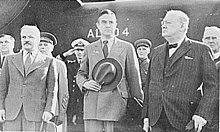Background
Government is a complex business and assemblies of elected politicians can not make every decision a modern government must make. So besides passing legislation which sets out very general policies, prescriptions on behaviour, and offences for breaking the law, they delegate the details and decisions to the provincial cabinet. There is also a very practical reason for doing this since the legislative body is not continuously sitting.
Examples of such details or decisions include the Alberta cabinet choosing who sits on the boards of governors of Alberta’s universities and colleges, appointments based on the recommendation and advice of the Minister of Advanced Education.
In addition to Orders, legislative assemblies delegate to cabinets the fleshing out the details of how to administer the legislation by creating subsidiary rules (regulations), including definitions, and scoping our powers of regulatory agencies such as the powerful Alberta Energy Regulator.
In theory, and occasionally in practice, opposition parties in legislative assemblies monitor closely the exercise of delegated authority.
Shortly after the provincial election was finished and Premier Smith announced the Legislative Assembly would not sit before the end of October, I speculated that Alberta would be governed through Order-in-Council. I was totally wrong. In 2023, there were a total of just 238 orders passed compared to the previous year mostly under Jason Kenney’s leadership when 424 orders-in-council were passed. Instead of O.C.s came a steady raft of carefully staged communications releases after the election.
This December there were several orders passed that both illuminate the ubiquitous of government and the nature of politics and power in this province.
Gifts
Orders in Council 237/2023 and 235/2023 concern the politically sensitive topic of gifts to staff in the premier’s and ministers’ offices and MLAs respectively.
The gift limits are established under new regulation-making authority created under section 47.1 of the Conflicts of Interest Act (COIA). Changes were made to COIA in the just completed session under Bill 8, the Justice Statutes Amendment Act, 2023. COIA previously set an individual event limit of $200 on gifts to members and family members and an annual limit of $400 from the same source.
The amendment allows cabinet instead of the legislative assembly to set limits for gifts now.
The O.C. creates the regulation which raises the limits to $500 for MLAs the and the change increases the monetary value of non-monetary gifts or benefits to $500 from $200. Disclosure of gifts over $250 is also required .

For staff members in the premier’s and ministers’ offices, O.C. 237/2023 replaces a 2020 limit of $200 set by the Kenney government. This change now allows fees, gifts or other benefits of up to $500 “as an incident or protocol or of social obligation that normally accompanies employment in these offices.” It’s not clear whether this excludes being lobbied or not. Acceptance of gifts above $500 may be approved by the Premier’s Chief of Staff, currently Marshall Smith. These decisions can be difficult ones requiring considerable judgment.

Covenant Health
Order in Council 238/2023 designates two entities- Covenant Health and Lamont Health Care Centre as employers for the purpose of the Public Sector Employers Regulation. This designation follows various announcements in the fall on the proposed reform of Alberta’s health care system. Under the proposed framework acute care “will work directly with service providers, including AHS, Covenant Health and contracted EMS providers, to speed up access to high quality care, reduce wait times and make sure the patient’s journey through the acute care system is efficient and effective across the province.” This means that Covenant Health hospitals (Edmonton’s Misericordia and Grey Nun’s hospitals) will no longer be under the aegis of Alberta Health Services. This requires Covenant and Lamont hospitals to be designated as a public sector employer under the Public Sector Employer Act (PSEA). This means collective bargaining and matters like payroll will be done by these designated organizations instead of by Alberta Health Services.
This change was a big victory for former Alberta Premier Ed Stelmach who has been the chair of Covenant Health for many years. Stelmach spoke in support of the health reorganization to The Globe and Mail’s Kelly Cryderman after the major health announcement on 8 November. Stelmach who as premier centralized regional health authorities into Alberta Heath Services (AHS) noted that “times have changed.” The reorganization now puts Covenant Health on the same footing as AHS.

The PSEA was amended by Bill 5. The Act retains the wording from the previous Act amended by the Kenney government: “is committed to preserving and protecting public services for Albertans, and fiscal restraint in compensation is key to achieving this objective.” There is a subtle change with respect achieving a balance between the autonomy of public sector employers and the Province’s accountability for fiscal oversight and the effectiveness and efficiency of public services (emphasis added). The effectiveness and efficiency criteria have been added to the preamble. More ominous for public sector unions is the removal in the preamble of “the Government of Alberta is also committed to respecting the autonomy of public sector employers and the importance of the collective bargaining process (emphasis added).
2024 will be a year of considerable government-union conflict
The implications of “effectiveness and efficiency” and the capacity of politicians to effectively sit right at the table will have enormous implications in the coming battle with organized labour. There will be negotiations with 82,000 of AUPE’s 95,000 employees under Guy Smith’s

leadership in 2024. The United Nurses of Alberta of 30,000 registered nurses under the direction of Heather Smith will also be bargaining as well as members of Mike Brown’s Health Sciences Association of Alberta. In all about 100,000 health care workers will be in a position to strike in 2024.
In 2024 Alberta teachers’ collective agreements which were negotiated by the government centrally during Kenney’s premiership and under the guidance of Travis Toews, expire. The Alberta Teachers’ Association has more than 35,000 full- and part-time members.
Foreign Ownership of Land Regulations
Orders 227/2023 and 228/2023 are interesting. These orders allow foreign owners of agricultural or recreational land to have land transferred to a new landowner. O.C. 227/2023 transfers land from the W. Averell Harriman Trust and the E. Roland Harriman Trust to Rocky View Holdings LLC. The lands must continue to be used for agricultural purposes, “or failing that, uses consistent with those of the directly adjacent and neighbouring parcels of land in accordance with all applicable land use and municipal bylaws.” Rocky View Holdings LLC must dispose of its holdings within three years of the date on which the W. Averell Harriman Trust and the E. Roland Harriman Trust are terminated. However, the Order can be superseded if the land is annexed by the City of Calgary “or otherwise.”
| W. Averell Harriman was a famous Wall Street financier who established Brown Brothers Harriman & Co. He then moved into increasingly prestigious government positions first under Franklin Roosevelt. Harriman as Commerce Secretary coordinated the Marshall Plan and subsequently served as U.S. Ambassador to Moscow in the early days of the Cold War. He also was elected Governor of his home state, New York. In 1952 he unsuccessfully sought the democratic candidacy for president in 1952. In the 1960s he was an advisor to the Kennedy and Johnson administrations. |

The second O.C. 228/2023 permits Wayfinder Sand Products Ltd. to be excluded from the operation of sections 22 and 25 of the Foreign Ownership of Land Regulations. These sections deal with providing detailed information under the Land Titles Act or to the Minister responsible. These exemptions appear to shield these entities from prying eyes or the public’s questions. In the case of Wayfinder, it is limited to carrying out excavation, washing, drying, and distribution of frac sand and resin-coated sand.
The Order’s Appendix then goes on to set conditions that if the company ceases operations and reclamation is ordered, the company must dispose of its interests within three years “of doing the reclamation.” If the company doesn’t sell the land then a judicial sale will be held with the province’s General Revenue Fund receiving the net proceeds. There appears to be no contingency for Wayfinder to ignore reclamation liabilities and go broke leaving the province to reclaim the land. There are no financial security conditions that would force Wayfinder to deposit money with the province before the reclamation liability was crystallized.